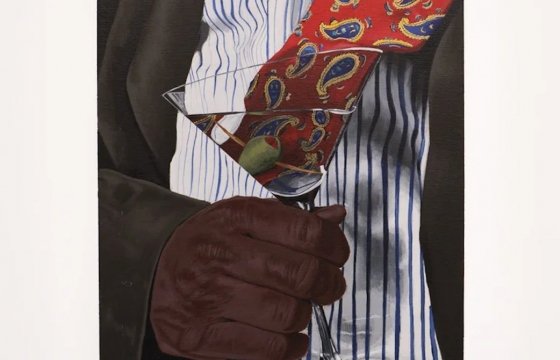

Image licensed via Adobe Stock
When a colleague takes credit for your work in meetings, staying silent feels wrong… but kicking up a fuss feels worse. Here’s how to reclaim your ideas without losing your professionalism.
Welcome to the latest in our advice series, Dear Boom. This week’s dilemma hits a particularly raw nerve: the colleague who repeatedly claims credit for your ideas. A reader writes: “Whenever we’re in client meetings, my co-worker finds a way to pass off my ideas as their own. It’s happened more than once, and I’m sick of it. I don’t want to cause drama, but I also don’t want to stay silent. What would you do?”
If this has happened to you, you’ll know that sickening feeling of powerlessness mixed with rage all too well. It’s not just about recognition; it’s about respect, fairness, and the acknowledgement that your contribution matters. Yet when we posed this question to our community on Instagram, the responses revealed just how common this problem is.
From freelancers to in-house designers, almost everyone has experienced some version of idea theft. Read on, as our community shares practical strategies for dealing with the situation, without torpedoing your working relationships.
The private conversation
The most consistent advice? Address it directly with the person first, before escalating or making it public.
Graphic designer Sebastian Ferramondo recommends a clear, private conversation before the next meeting. “Talk to this person in a private space and make it very clear that the ideas are yours and not theirs,” he says. “Make it clear that they should give you the space to present those ideas at the meeting. Confronting someone while speaking respectfully is the best tool in the office.”
This approach serves three purposes. It gives the person a chance to correct their behaviour without public embarrassment. It establishes that you’re aware of what’s happening. And it creates a clear boundary that makes future theft harder to execute.
The key word here, though, is “respectfully”. Going in angry or accusatory will just put them on the defensive. Instead, approach it as a professional boundary issue rather than a character attack. You might say something like: “I’ve noticed that ideas I’ve shared with you have been presented as yours in meetings. I’d appreciate the opportunity to present my own work going forward.”
The in-meeting redirect
But what if the theft happens again, right there in the meeting room? Artist and illustrator Ansitru suggests a brilliantly subtle approach: act as though your colleague is simply introducing your idea for you to elaborate on.
“Thank you for bringing this up,” Ansitru recommends saying. “For some context, when working on this idea, I took x and y into consideration…” Then simply continue building on it as though they were presenting it on your behalf. “Just act clueless, as if they’re simply presenting your idea for you to build off of it in a meeting,” she explains. “This is how I’ve handled it a couple of times.”
This technique is elegant because it reclaims ownership without direct confrontation. It positions you as the expert with the deeper understanding, while making it awkward for the colleague to continue claiming credit. Most importantly, it happens in real time, so clients and managers witness who actually owns the thinking.
However you approach it, though, artist Melissa Wang—who says she witnessed idea theft repeatedly at Meta and Google—advocates for calling the culprit to account. “At best, they ask for permission to ‘borrow’ your template; at worst, they include it in their portfolio as their own,” she says. “You can warn them once, but hold them accountable by letting your or their manager know, because they don’t want rubbish talent.”
When to escalate
Sometimes a private conversation isn’t enough. If the behaviour continues after you’ve addressed it directly, it’s time to involve management.
Before you do, make sure you have documentation: emails, project files, meeting notes, anything that establishes the timeline and ownership of your ideas. Present the situation factually rather than emotionally. Focus on the impact on your work and your ability to build client relationships, not on personal grievances.
Ultimately, though, prevention is always better than cure. Graphic designer Agata Kalińska points out that “a unique style can help your work and ideas be recognised and make it difficult for others to take credit for them”.
This doesn’t just mean visual style; it could also mean developing a distinctive way of thinking about problems, a particular approach to client relationships, or specialised knowledge that makes you the obvious source of certain kinds of ideas.
Brand strategist, stylist, and storyteller Sarah Robertson offers a more mischievous approach. “First thing that popped into my mind was sharing some of your worst ideas with them during your next conversation.” While this is clearly a joke, it contains a kernel of truth. Being strategic about what you share with serial idea thieves is simply smart self-protection.
The bigger picture
Idea theft doesn’t just happen between colleagues; it can occur at any level, from any direction. Creative director Ibrahim Tarafdar once worked as a barista for Starbucks and pitched a story. “They stole my story and turned it into a national ad,” he says.
It always helps to document your idea at the outset. Designer and illustrator Liz Harry learned this the hard way when she partnered with someone who not only failed to mention their company name in a national magazine interview about their album cover work, but also credited himself alone. “What made it even worse was that we were seeing each other at the time,” she recalls. “After we’d split, he even went to meetings with my latest solo work in his portfolio.”
Liz’s experience highlights why you need to create a paper trail. Send follow-up emails after meetings that document your contributions: “Just to recap, I’m excited to develop the concept we discussed where I suggested…” Share work-in-progress files from your own accounts. Build a portfolio that clearly shows your individual work and thinking process.
In all honesty, this stuff is never as clear-cut as it should be. The creative industries have a complicated relationship with intellectual property. Ideas flow freely, inspiration overlaps with imitation, and collaboration can blur the lines of individual contribution. But there’s a clear distinction between collective ideation and deliberate credit theft.
When someone repeatedly presents your ideas as their own, they’re not collaborating. They’re exploiting your creativity while undermining your professional standing. And that behaviour deserves to be challenged.
Taking action
So what should you actually do? Here’s a practical roadmap:
Document everything. Keep records of when you developed ideas, who you shared them with, and when they were presented. Emails, project files, and meeting notes all matter.
Have the private conversation. Address it directly with the person first, calmly and professionally. Make your expectations clear about future behaviour.
Reclaim ownership in the moment. If it happens in a meeting, use Ansitru’s technique of building on “their” presentation of your idea, establishing yourself as the expert.
Escalate if necessary. If the behaviour continues, involve your manager with documented evidence and a focus on professional impact.
Protect yourself strategically. Be thoughtful about what you share and when. Present your own ideas in meetings whenever possible.
Know when to walk away. If the environment is toxic and management won’t address the problem, your wellbeing matters more than staying put.
The long view
Idea theft violates professional trust and creative integrity. It’s natural to feel angry, frustrated and undermined when it happens. But you don’t have to accept it as an inevitable part of working life.
The most successful creative professionals don’t just create brilliant work; they also advocate for themselves and establish clear professional boundaries. Speaking up about idea theft isn’t causing drama. It’s protecting your career, your reputation and the value of your creative thinking.
So address it directly, document thoroughly, and never apologise for standing up for yourself. Because while collaboration thrives on generosity, professional respect demands honesty about who created what.


